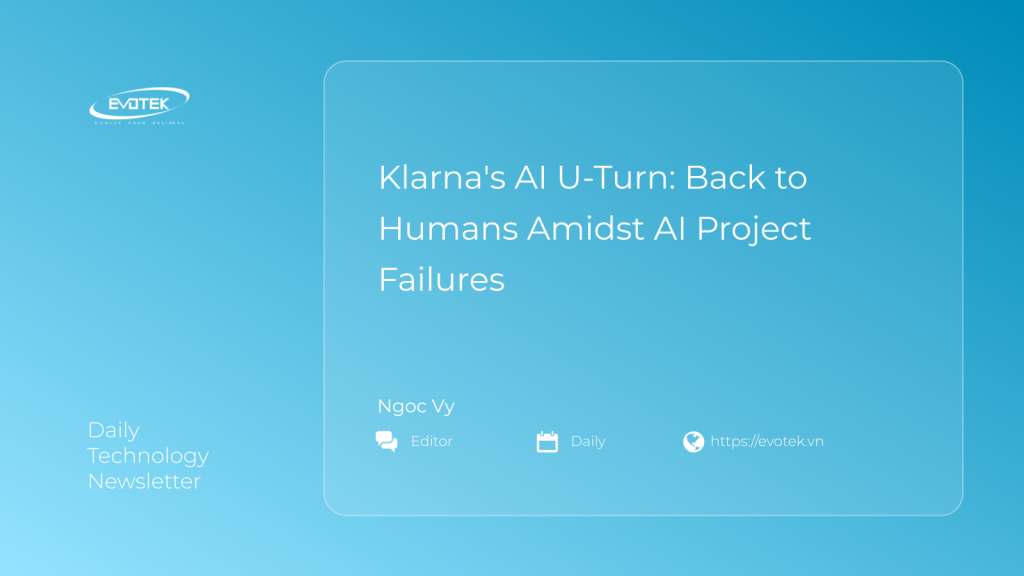Fintech giant Klarna is shifting gears, re-emphasizing human employees after heavily relying on AI for customer service. This change comes as a new study reveals that many AI initiatives fail to deliver promised returns.
Klarna’s CEO, Sebastian Siemiatkowski, admitted the company is actively recruiting human agents to enhance customer support quality. This decision marks a significant departure from the company’s previous AI-first strategy, where AI-powered chatbots were touted as replacements for hundreds of human employees.
“[I]t’s so critical that you are clear to your customer that there will be always a human if you want,” Siemiatkowski told Bloomberg.
Klarna previously highlighted the efficiency of its AI chatbot, claiming it handled the workload of 700 human agents. The company even reported a hiring freeze on human workers, boasting about internal efforts to maximize AI efficiency. Siemiatkowski stated in February that he believed “AI can already do all of the jobs that we, as humans, do.”
However, the focus on cost-effectiveness through AI appears to have compromised service quality. Siemiatkowski acknowledged that investing in “the quality of human support is the way of the future.”
Despite the shift, a Klarna spokesperson emphasized that the company remains “very much still AI-first,” maintaining a policy of not replacing departing employees outside of freelance customer service roles.
AI Project ROI: Often a Miss
Klarna isn’t alone in facing challenges with AI implementation. An IBM survey of 2,000 CEOs found that only 25% of AI projects generate the anticipated return on investment. Furthermore, only 16% of AI projects are successfully scaled across entire organizations.
The survey indicated that many companies invest in AI due to a fear of falling behind, even without a clear understanding of its value. This “tech-first-ask-questions-later” approach has led to several high-profile AI failures.
Air Canada, for example, was held liable for $880 after its chatbot fabricated a refund policy. McDonald’s abandoned its AI-driven drive-thru system after numerous errors, including adding bacon to ice cream orders.
While external evaluations of Klarna’s chatbot suggest it was functional, it was also limited. Tech writer Gergely Orosz described it as “underwhelming,” noting that it primarily acted as a filter to connect customers with human support.
Klarna’s Hybrid Approach
Klarna is now experimenting with a hybrid approach, hiring freelance customer support agents and piloting a flexible “Uber-type” system where workers can choose their own schedules and work remotely within Sweden. The starting pay is 400 Swedish krona ($41.17). Siemiatkowski suggested that passionate Klarna users could even become customer service agents.
“We also know there are tons of Klarna users that are very passionate about our company and would enjoy working for us,” he stated.
This blended strategy signals a more nuanced understanding of AI’s capabilities and limitations within customer service. Klarna’s experience highlights the importance of carefully considering the balance between AI and human interaction to ensure optimal customer satisfaction.
Source: Irina Ivanova, Fortune

 日本語
日本語 한국어
한국어 Tiếng Việt
Tiếng Việt 简体中文
简体中文